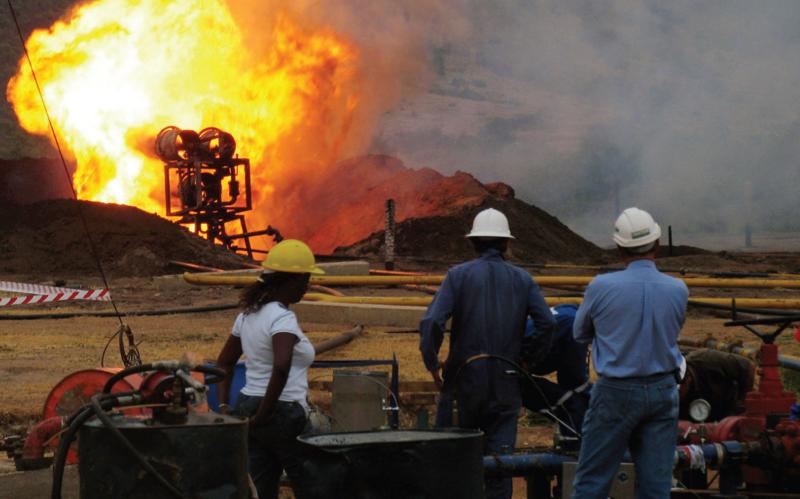
Ameilia Kyambadde with Annabel Gonzalez, a senior World Bank Group director for Global Practice on Trade and Competitiveness
The Trade, Industry and Cooperatives minister, Amelia Anne Kyambadde, has told a high level meeting with a senior World Bank official that oil and gas remain one of Uganda’s strategic plans for the country to attain middle income status by 2020.
Uganda is expected to start the official production of oil by 2019 according to the country’s officials in the ministry of energy and mineral resources.
According to a statement from Uganda’s permanent mission in Switzerland, Kyambadde, and Annabel Gonzalez, a senior World Bank Group director for Global Practice on Trade and Competitiveness met on Tuesday on the sidelines of the Sixth Global Review of Aid for Trade in Geneva.
The meeting was held at the request of the World Bank. Also at the meeting was Michael Wamai, Counsellor at the Permanent Mission of the Republic of Uganda in Geneva.
Kyambadde briefed the World Bank official on Uganda’s priority areas of commercial and economic interest and called for support from the World Bank.
“We have prioritized oil and gas as one of our areas to propel us to middle income status by 2020. We are therefore appealing for your support in steering these plans forward so that we can get our people out of people.This will require a lot of infrastructural development which you can readily help us with,” the statement further quotes Kyambadde.
Kyambadde noted that Government was focusing on other key strategic areas that would ensure that Uganda graduates into middle-income status by 2020 such as tourism, agriculture, with a particular focus on Coffee, Cotton, Tea; and Oil and Gas for purposes of infrastructural development.

Oil exploration
With regard to trade facilitation, connectivity and competitiveness: She highlighted the trade facilitative measures that Government had put in place such as the Electronic Single Window, Electronic Cargo Tracking System for Goods, and the Non-Tariff Barrier Monitoring System.
Kyambadde underscored the importance of regional partnerships in advancing the objectives of trade and development such as under the East African Community (EAC), Common Market for Eastern and Southern Africa (COMESA) and the soon to be formed Continental Free Trade Area (CFTA) which is still at negotiation phase.
She underlined the extensive strides made by the Presidents of the EAC on the key infrastructural projects that are being undertaken to promote not only deeper integration, but also the competitiveness of the region in lowering trade costs. These include the standard gauge railway line; marine transport; one area network; and oil pipeline among others.
According to a statement by the Permanent Mission of the Republic of Uganda in Geneva, Gonzalez welcomed the important, and strategic moves that have been taken by Uganda and agreed to continue working with the Government on these and other areas.
Gonzalez noted that the World Bank’s program on diversification is specifically meant to deal with areas in Agriculture and tourism that Kyambadde had identified.
She expressed the World Bank’s willingness to work with the Government on the issue of warehousing and logistics. The trade minister welcomed the support. The two agreed to continue working together on these and other issues of interest.

